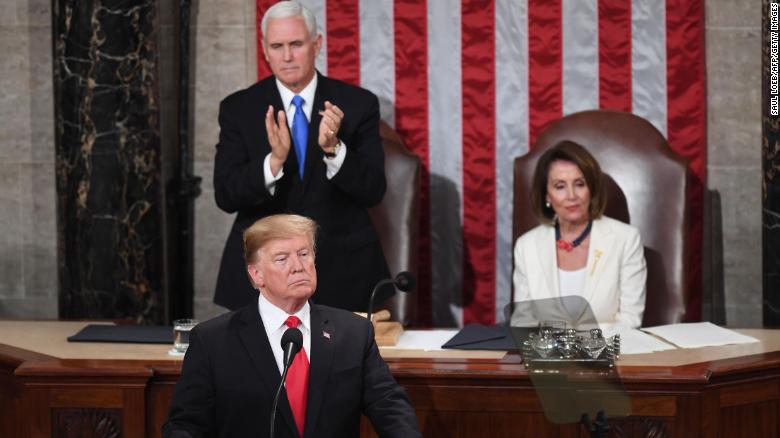In 2019’s State of the Union Address, President Donald Trump opened his speech by driving for national unity among the Democratic and Republican parties. His message sought to bridge the gap between the two parties, and he generally avoided inflammatory rhetoric throughout. The response to the address exemplifies the deep political divide America has, as those who are Trump supporters liked the address, and those who do not support Trump did not like it.
Trump’s attempt to bridge the gap between the two parties was an expected maneuver. With the current political landscape, it seems that there is hardly any room for more division; however, the speech seems to have had an insubstantial result as far as bringing the two parties together. Polls taken by CNN after the address indicate that whether an individual approved of the speech or disapproved of it was largely due to whether or not the individual identified as Democrat or Republican.
The content of the address was neither good nor bad, and this article may be easily construed to have partisan bias. However, I am attempting to examine the nature of the political divide in America by using Trump’s State of the Union to show the dangers of the current political landscape.
It is overwhelmingly obvious that Americans generally cannot find common ground across party lines. Likewise, the polls taken by CNN following the State of the Union indicate that even with the efforts by Trump to bridge the gap between the two parties, the results are futile.
It seems that the political sphere, instead of being a center for solving problems and finding common ground, has become completely tribal. Each side, regardless of their respective political slant, has fallen completely into a mindset of regarding the other side as not only flawed, but reprehensible to the point of not deserving to be listened to.
This flaw, or schism in the nature of American politics, is something which I believe transcends the right and the left. It has now risen to the level of being personal and not detached from the individual. For example, if an individual expresses that he or she follows political party A, that individual is now totally at risk of being regarded as reprehensible as a human being.
In the ideal state of the political landscape, the individual would be respected for his or her political beliefs and may be questioned on the content of his or her belief. The current landscape instead drives individuals within the Democratic or Republican Party to automatically detest the other individuals on bases that have nothing to do with the individual, rather than only having to do with their political beliefs.
This precedent that has been set since 2016 is in many ways a revolution. Historically, when politics have become this personal, it has led to sweeping social change. Whether that change will be, either positive or tyrannical, it is impossible to be sure. However, we should at least truly listen to each other along the way and attempt to find common ground. We are all humans, and in spite of our beliefs, we at least deserve to be heard.
photo courtesy CNN

























